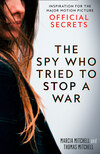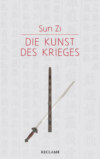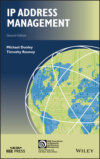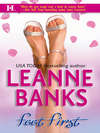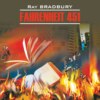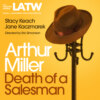Kitabı oku: «The Spy Who Tried to Stop a War», sayfa 3
She says: ‘It might sound pretty naïve, but I really thought this could affect the decision to go to war. If the Observer could authenticate the document it would, I imagined, cause a furore across the world through the pages of the media. The news would jolt the United Nations into acting, and the British government might just pull back from the abyss. If all of that happened, I felt the United States would not go into Iraq on its own, that this would have a domino effect, with publication of the story in the Observer the start.
‘The reason I did not write the story myself was that I had become well known as an anti-war speaker and was one of the founders of the Stop the War movement. I felt if my name were attached to the story, it might have diluted its strength, and so I did something I never thought I would do – I gave up a scoop and the exclusive byline tag for the greater good.’ They met at a café in Central London, not far from the Soho flat Yvonne shared with her young daughter, who was with her this day. A number of media colleagues have been critical of Yvonne for leaving her daughter at home while she adventured in Afghanistan, but Martin takes exception to this criticism. He admires Yvonne as a colleague and as a mother. She is not only a reliable journalist, but also a good, decent person.
‘Yvonne handed me a scrap of paper, with this memo typewritten on it,’ Martin says.[6] ‘There were no markings on it at all, no evidence of who sent it or who it had been sent to. My immediate reaction was, “what use is this to anybody? You could have typed this out.”’
‘No, no. Really, honestly, it’s for real,’ Yvonne insisted. ‘You need to check it out yourself.’ She said she did not know the source of the message, and Martin believed her. If Yvonne’s anti-war, Islamic stance crossed Martin’s mind it did so quickly and did nothing to shake his trust in the woman beside him.
Yvonne had written on the back of the paper some identifying marks from the memo’s header. They included Frank Koza’s name and organization.
Back at the Observer, a vetting process began. It was vital to prove Frank Koza and his message were real. Quiet contacts made with intelligence sources led to some amazing responses, the first being that the memo was a likely forgery. There were cautions expressed about the infamous Hitler Diaries, all forgeries. One had to be careful. Most interesting was word from one source within the intelligence community that a renegade operation within MI6 was leaking the message to discredit the government. The idea seemed to have legs.
‘We became, at the time, convinced that there were elements within the intelligence service that were so unhappy with the war that they would do this,’ Bright says. ‘We thought renegade elements against the war had managed to receive this leak through contacts at GCHQ and thought, “One way of stopping this war is to get this out.”’ Eventually, the journalists believed differently, but for a time, the argument held and the newspaper team moved ahead carefully.
‘When you’re dealing with areas of intelligence, you are constantly in a strange world,’ Bright says, a world in which manipulation of the media by sources is always possible. By now, Observer colleagues Ed Vulliamy in New York and Peter Beaumont, also in London, joined Martin. Both, Martin says, ‘are older and more experienced’.
Ed, from New York, made the call to Frank Koza at the NSA in Maryland. To his amazement, a switchboard operator responded to his request for Koza’s office and immediately put him through to a receptionist. According to Bright, the conversation went like this:
‘Frank Koza’s office.’
‘May I speak to Frank Koza, please.’
‘Who may I say is calling?’
‘Ed Vulliamy of the Observer newspaper in London.’ Pause.
‘Who do you want to speak to?’ the receptionist asked.
‘Frank Koza.’
‘Sorry, I’ve never heard of him.’
The Observer team now believed they were on solid ground. Ed was asked to check around with various insider sources and learned that the style and content of the message seemed consistent with authentic communications of this nature. They decided, after three weeks of investigation, that the memo was not a forgery, that there was no way it ‘could have been set up’.
One final concern was the possibility of legal action against the newspaper.
‘More of a concern to us was that we would be joined in the prosecution,’ Martin explains. ‘To publish is an offence under the Official Secrets Act. We were as culpable as Katharine. But they’re cowards. So, they preferred to take on the little guy – in this case, little woman – rather than us big guys.’
The editorial team had to be careful in speaking to sources about the NSA message. Loose talk could lead to a legal injunction prohibiting publication. Earlier, the newspaper had been successful in fighting an injunction in the case of former MI5 officer David Shayler, also charged with violation of the Official Secrets Act. The court’s decision had been close, but the Observer had prevailed. Bright and company were counting on the government’s not coming after them again. The Shayler case had become so high profile that it now stood as a principle against the police going to journalists for evidence. The Shayler injunction application had asked for all meeting notes and tape recordings concerning the case, a broad ‘trolling’ request eventually denied. Bright notes that a different decision would have meant that every time a journalist wrote about an investigation, an application could be made to ‘turn over everything that might be of interest’ to law enforcement.
Going on the experience with Shayler, trusting their gut feelings about the authenticity of the Koza message, and figuring that the government would not prosecute the Observer for an Official Secrets Act violation, the decision was made to publish three weeks after Bright and Ridley met in Central London.
It was still a risk.
In Washington, last-minute preparations for Powell’s historic and, as it would turn out, inaccurate report to the United Nations must surely have been aided by the information requested by Frank Koza and eagerly scrutinized by the folks behind the operation. It was advantageous to know what the opposition was thinking.
The operation continued beyond Powell’s performance. For four weeks, the surveillance ‘surge’ went according to plan. Despite the continuing problem with Aguilar Zinser and Valdés, there was hope in Washington that the swing voters would soon join the right team (if need be, through coercion), that China would hold to its position of abstaining, and that Russia and France could be convinced to go along. In that case, success was at least within the realm of reasonable possibility. It was, until travel along the secret road to war encountered a dangerous, and unanticipated, barrier.
And in Cheltenham: ‘I went to my local shop, as usual, on a Sunday morning to get my copy of the newspaper. It was 2 March. I was completely, totally bowled over – gobsmacked – when I saw what was on the front page. It knocked me for six, and I think that’s the point where it hit me that I was in trouble. Serious trouble.’
‘The United States is conducting a secret “dirty tricks” campaign against UN Security Council delegations in New York as part of the battle to win votes in favour of war against Iraq,’ Martin Bright, Ed Vulliamy, and Peter Beaumont wrote. ‘Details of the aggressive surveillance operation, which involves interception of the home and office telephones and the e-mails of UN delegates in New York, are revealed in a document leaked to the Observer.
‘The memo describes orders to staff … whose work is clouded in secrecy, to step up its surveillance operations … to provide up-to-the minute intelligence for Bush officials.’
Made clear in both the news story and the memo itself was that UNSC members not specifically named by Frank Koza also were of interest. These would include Russia, France, China, and Mexico. And it would be more than a year later when the full extent of the surveillance was known.
The Observer scoop noted that the disclosure came ‘amid increasingly threatening noises from the United States towards undecided countries of the Security Council who have been warned of the unpleasant economic consequences of standing up to the United States’. Attributed to Washington sources was information that President Bush’s national security adviser, Condoleezza Rice, requested the spy operation. It was predicted, albeit wrongly, that this NSA misadventure would be ‘deeply embarrassing to the Americans’.
The nature and depth of news coverage made it clear that this was not going to be one of the usual ‘reliable government source’ leaks. It was explosive, and there would be demands for accountability. Katharine made her way home in struggling slow motion, manoeuvring through a slog of sickening fear, apprehension, and guilt – guilt only so far as Yasar and her family were concerned. The full realization of what her action could mean to her husband’s safety struck her as solidly as a slap on the face. And there were her beloved parents and brother living and working in Taiwan, not to mention Gran in Yorkshire. All those who loved and trusted her.
It was not known who leaked the message or where that person worked. But the fact that the message had been replicated in the newspaper, not just its contents reported in an article, that it had been headlined on page one, signalled that naming the betrayer would be only a matter of time. Gobsmacked.
Katharine fell into the house and into Yasar’s arms, sobbing, so distraught that he was terrified and had difficulty making sense of what she was trying to say. Katharine handed him the newspaper. ‘It was me,’ she said. Slowly he read the headlines and the beginning of Bright’s story. His reaction was gentle, surprisingly so for a passionate Mediterranean temperament. ‘I understand,’ he told her. ‘You did what you had to do. I am proud of you.’
Yasar tried to comfort his wife, but she could not stop crying. He told her, ‘You don’t have to tell anybody. Nobody knows it’s you if you don’t confess. They can’t prove anything.’
The fear made her physically ill all that Sunday and throughout the night. Vomiting and diarrhoea left her weak, and she was barely able to dress for work in the morning. She thought about calling in sick but then thought better of it, not wanting to call undue attention to herself. This morning, when Yasar dropped her at the gate he held her close longer than usual, smoothed her hair, kissed her gently. ‘I am proud of you,’ he told her again when at last she pulled away from him. ‘Very, very proud.’
The manhunt was immediate, thorough, and tough. There would be no anonymous source; the source would be found and punished. Too much was at stake at the moment, principally the hotly debated US/UK draft resolution designed to legitimize a pre-emptive strike on Iraq and to build a broad-based supporting coalition. Throughout the day, various people were called in for interrogation; wide-eyed and apprehensive, they disappeared and, damp-browed and silent, they returned. The air was thick with fear and suspicion.
Katharine’s turn came on Tuesday. She had slept a little on Monday night, but not for long and certainly not peacefully. Her answer to the principal question was simple, direct, and patently false. ‘I read the message and I deleted it.’ The questioning session was just what she expected. She was well prepared and apparently convincing. Katharine remained outwardly calm during her interview but was mentally awash and weak-kneed when she returned to her desk, unable to focus. Blurred images floated mystically across her computer screen, refusing to settle into place, defying her ability to translate. Somehow, she got through the day. The night would be worse.
Yvonne, in Bahrain, was relieved to see the story published ‘after three nail-biting weeks’. Feelings of relief did not last and she feared she would be arrested. She debated whether she should go to Jordan, or even into Iraq.
‘Anything,’ she says, ‘seemed preferable to being arrested.’
CHAPTER 4: Conscience Meets Inspector Tintin
The Observer said yesterday that the memo had been leaked to it ‘by British security sources who objected to being asked to aid the American operation’ … a 28-year-old woman employee at GCHQ was arrested.
– Jeevan Vasagar and Richard Norton-Taylor, Guardian
I’m pretty rubbish at telling lies, and I try to be an honest person. If I had continued to lie, I would have been dishonest, like them. I have to say that I’ve only ever followed my conscience. And it, my conscience, is such a nuisance.
– Katharine Gun, to the authors
KATHARINE’S NUISANCE OF a conscience would not let her sleep after telling government interrogators on Tuesday that she had read and immediately deleted Frank Koza’s message, that she had assumed it had nothing to do with her. The magnitude of the lie was too great, the sense of guilt too strong. Her conscience had made her physically ill, and she reached the only decision possible. After a fretful, sleepless night, and tortured indecision, she determined she would admit to her crime. All hopes of anonymity had evaporated.
On Wednesday morning, Yasar did not drive directly to GCHQ; instead, in silence, he drove aimlessly around the city, delaying the moment when he would leave his wife at the GCHQ gate. She sat at his left, exhausted, head tilted back against the seat, numbed. A tape of Turkish music played softly. There was an amazing sense of serenity in the car.
Wednesday morning was chilly but lovely. The rush hour, such as it was, had passed in this city, a uniquely inviting place resting peacefully on the western edge of the lush Cotswolds. In the distance are ancient forests and gentle hills, a verdant green that extends down to gardens throughout the city. In spite of a modern mall downtown, Cheltenham is typically picture-perfect English, with its elegant Georgian architecture and palpable aura of the past. Here, one can reach out and touch the Middle Ages, can marvel at historic Regency influence.
Although she was raised in Taiwan, Katharine is fiercely, loyally British. She never felt her nationality, her fealty to birthplace, more vibrantly than this day when she knew she was taking the risk of being called ‘traitor’.
Finally, reluctantly, Yasar pulled to a stop at the sprawling secret complex located in a suburban setting that seems so inappropriate. But then, that seems to be the way of some of the world’s most secret enterprises, settling themselves as they do in bucolic rural or suburban neighbourhoods. Even if the mission is markedly different, one expects a place more ominous; for example, more like Russia’s infamous Lubyanka, standing meanly in the heart of bustling Moscow.
Not yet ready for occupancy this Wednesday was GCHQ’s new ‘doughnut’, a circular answer to its five-sided American counterpart in Arlington, Virginia. The new facility is located in the open, where from a short distance away one can stop and gawk at the hub of the United Kingdom’s most secret business. This morning, during the drive around Cheltenham, Katharine was thinking that she would not be with her colleagues when it came time to move to the posh new building.
Yasar both knew and understood what his wife had decided, that Katharine had to do what she firmly believed was right, a belief consistent with Yasar’s own philosophy of the human experience. This, in spite of his having told her that ‘no one could prove anything’ if she did not confess. Those were throwaway words, which they both recognized as soon as they were spoken.
The goodbye kiss and cuddle were brief, and Katharine did not look back as the Metro drove away. She knew the scene at the gate would never be repeated.
No coffee, no cinnamon roll this morning. As she entered the office, Katharine, in obvious distress, caught the attention of her manager. Concerned that the young translator was ill, she took Katharine into a side office. With no preamble, with no excuse, Katharine said simply, ‘The leak was me. I did it.’ She burst into tears.
Visibly shocked, disbelieving at first, the woman said nothing but reached out to put an arm around Katharine’s shoulder. When Katharine calmed, her manager took her arm and led her directly to the Security Department, her touch gentle, her obvious concern comforting to the frightened younger woman.
The die was cast, and Katharine’s promising future evaporated as quickly as if it had been deleted from her computer screen. Zap. Gone. Permanently, irretrievably deleted. There would be no handy ‘undo’ or ‘restore’ options.
Questioning began around ten o’clock that morning, Katharine’s interrogators GCHQ security personnel. She was comforted by the presence of her manager, who never left her side. They sat circling a round table, questions and answers posed and responded to with quiet civility. Why? Who? When? And, of course, how? It was necessary to make certain that Katharine was indeed responsible for this egregious breach of the Official Secrets Act.
Two years earlier, on 4 January 2001, Katharine Teresa Harwood signed the GCHQ Statement of Written Particulars, required of all new intelligence officers, and she accepted the terms and conditions set out for her job as a Mandarin translator. It included the paragraph below:
34. OFFICIAL SECRETS ACT
GCHQ is one of the UK’s intelligence and security services. As an employee you will therefore be subject to the special provisions of Section 1 of the Official Secrets Act 1989. You are required to sign a document on joining and leaving the Department to show that you are aware of the provisions of this section and of the other provisions of the Official Secrets Act which also apply.
Essentially, the Official Secrets Act makes it a criminal offence for all members, or former members, of the security services to disclose official information about their work. The areas covered by the act include releasing information on defence, international relations, security service activities, foreign confidences, and information that might lead to a crime being committed. Katharine’s release of the Koza message fit neatly into the specifically named offences.
Thirteen years earlier, almost to the day, a newly revised OSA made not only secret service officers, like Katharine, but also journalists – like Martin, Ed, and Peter at the Observer – subject to prosecution if they disclosed information the British government considers damaging to the defence of the country or to its interests abroad.
Katharine’s manager escorted her to lunch, then returned with her to the Security Department. She was not left alone at any time. When the Metropolitan Police arrived, they gave Katharine the chilling news that Scotland Yard was coming to make a formal arrest.
‘It was then that it really hit me. I had never been in trouble with the law. I had only spoken to police to ask directions, or when I had things stolen from me. I’d always been the victim, not the criminal.’
At some point, her questioners asked Katharine if she wanted to call a lawyer. She answered that she knew of no one to call and was assured that a duty solicitor would be assigned to her in due course. When Scotland Yard officers arrived, Katharine Gun was arrested for violation of the Official Secrets Act, a serious crime with ominous possibilities of punishment. She was terrified.
Katharine speaks highly of the Scotland Yard officers who arrested and interrogated her, as she does of the Cheltenham ‘regular police’ who held and confined her. The men from the Yard were thorough but kind, one in particular, whom she calls ‘Detective Inspector Tintin’, after a cartoon French boy who adventures around the world. ‘He is a little blond boy with a sticky-uppy flick in his hair,’ Katharine says of him. Because of the serious nature of Katharine’s crime, Scotland Yard conducted all post-arrest interviews and investigations.
Katharine was taken into police custody in Cheltenham, where she went through a booking process and then was led to the Custody Suite. Her personal belongings were taken from her – her handbag, watch, necklace, and her belt. There was no body search, but a female officer patted her down.
‘They were kind about it all,’ she says. ‘I knew they were just doing their jobs, and I tried to keep that in mind.’ This was not difficult to do, given that she had moved to a far distant mental place, one where she did not consider herself a criminal, where she saw herself as quite different from the usual jailhouse residents. She did not belong with the ‘addicts, drunks, and prostitutes’ who were the ‘regular customers’ of this place. Her mental and physical selves had separated.
‘Custody Suite’ was something of a misnomer. It was a single room with a bare cement floor. The bed was a block of cement holding a plastic-covered foam mattress. Next to the bed was a metal toilet without a seat, with no partition of any kind to offer privacy from police officers who opened the door without warning. ‘I was afraid I would be caught on the loo,’ Katharine says. Dinner that night was fruit juice and biscuits. She could have asked for a bowl of chilli but did not. As it turned out, this would be the menu item for breakfast.
Once the booking process was over, a duty solicitor was called on Katharine’s behalf, and she spoke to the woman over the telephone. Next, she was allowed to call her husband.
‘I guess we were both in shock at that stage, when we talked on the telephone. He had already come down to the police station, but they wouldn’t let him see me. They told him, “Oh well, we’re too busy at the moment processing this and that and whatever. Besides, we have to supervise the visit. Try later.” He was asking me on the phone if I was all right, and if I needed anything. He said he would keep trying to see me, but he had no idea what time that would be.
‘Yasar learned where I was when my manager called him. I had given her his mobile number and she called him almost straight away. From one o’clock until eight, then, he wasn’t allowed to see me. He was so worried.’
There would be no more questioning until a search of the Gun home in Cheltenham was completed, which meant not until the next morning. Yasar told Katharine that night that he found the search terribly upsetting. He had let the officers in the front door, then left the premises. Every inch of the place was searched, and only incidentals taken. These included two books in Turkish from among the dozens of books in the house. Curious, one might observe, that the searchers recognized and confiscated the Turkish texts.
‘As to what they were looking for, I think they were just trying to see if there was anything at all that would suggest a pattern of activity. I mean, they didn’t need evidence because I had already admitted that I had done it. They took my passport, my mobile phone. I didn’t have a computer at the time; they surely would have taken it if I had.
‘Later, everything was more or less back in the same position after the search, but you just knew things had been touched. I felt bad, because the house was a rented accommodation, rented from someone at GCHQ posted to London. I felt bad that it was his house being searched as well as our dwelling. I wanted to move after the search, but we continued to live there for over a year. The owner was very calm and dignified about it all. He didn’t say, as he could have, “How dare you get yourself in trouble while living in my property?” I think GCHQ had got in touch with him and alerted him to the search before it happened.’
Yasar would not sleep in the house the night of the search. It was eerie, being there, and he went to stay with a friend.
Sometime after eight o’clock Yasar was finally allowed to see Katharine. They met in a special visiting room, one where the prisoner enters one side of the room and the visitor the other. A glass partition in the centre separates criminal and visitor.
‘Yasar cried the minute he saw me. I would have cried if he had not, but the minute I saw him crying, I thought no, I’ve got to be strong. So I was saying, “Look, it’s going to be okay, don’t worry. I’ll be out tomorrow. Please don’t cry.” He brought me comfortable sweat pants and a jacket to keep me warm. There was only a thin brown blanket on the bed. He brought some books, but they wouldn’t let him give them to me. Anything he brought in like that had to be sealed.
‘We had only fifteen minutes. But because you can’t reach out and comfort each other, I don’t know if more time would be beneficial. You feel really helpless like that.
‘It was such a shock for Yasar. He married a nice, white, middle-class English girl, who had a nice, secure, sensible job with the government. A civil servant, well paid, and then she goes and lands herself in prison.
‘The police were quite considerate that night, as nice as they could be without jeopardizing their professionalism. They said to me, if I needed a cup of tea or anything like that, I could ring the bell.
‘The police said if I had trouble sleeping there would be a duty doctor in later that evening, and I could get a sleeping tablet if I wanted one. I did. I got a headache tablet and a sleeping tablet. I’d never taken a sleeping tablet in my life, so I was quite nervous. It worked a treat, and I didn’t wake up feeling groggy or anything. But I was thinking, if I take the tablet, will it knock me out instantly? Do I dare go to the toilet before I sleep? Suppose I end up falling asleep on the toilet? But no, it worked really well. I slept soundly, to my surprise.’
She saw both the solicitor and Tintin the next morning, meeting in a small, windowless interrogation room. Katharine learned the solicitor would be assigned to her only temporarily, until permanent representation could be arranged. She had no idea at the time what extraordinary, world-class representation that would turn out to be. In the meanwhile, it seemed painfully obvious that the duty solicitor was out of her depth in attempting to deal with a case that was far beyond her experience. The court-appointed solicitor was accustomed to working with ‘street kids’ in trouble. Katharine Gun was something else.
Tintin’s questions focused on the why and how of Katharine’s crime and on whether she had an accomplice. She explained her motivation, and the Scotland Yard officer seemed to accept what she had to say. Interrogation focusing on the question of an accomplice was another matter and reached a stage where Tintin, certain someone else was involved, pressured Katharine for answers. Fearful of betraying Jane, she began to cry, insisting that, ‘All the intentions were mine.’ In attempting to protect Jane, she had said at the time of her arrest and until this instant that she acted totally alone, that she had mailed Koza’s message directly to the newspaper.
Now, under enormous pressure, she asked Tintin, ‘Am I obliged to give a name?’ He said no. He did not need a name, certain he would learn by investigating communication records and other avenues just who it was Katharine had contacted the weekend prior to printing out the memo. Katharine believes she somehow let slip enough clues, perhaps through e-mail and telephone contacts, to lead investigators to Jane. ‘You just don’t know what they’re capable of,’ she says. ‘Experienced criminals do, but not people like me.’
Once the police identified Jane as the likely accomplice, they repeatedly questioned her, searched her home, interviewed her family. She denied everything. Without Katharine’s naming her and given Jane’s refusal to admit to complicity, she was never indicted; evidence was lacking for a conviction. She was furious with Katharine.
‘Jane said, “Oh, Katharine! How could you let your guard down?” She said I should have kept quiet and said “no comment,” that what I had done was “un-streetwise”. It was a bit of a tricky patch for a while, because Jane thought I had let her down, but now, in spite of it all, we are still friends.’
While in Bahrain, Yvonne Ridley received a couple of alarming text messages saying that Katharine had been arrested and police had ‘raided a couple of homes’. Finally, after much deliberation, she abandoned thoughts of hiding out and returned to London.
‘Later,’ Yvonne says, ‘Katharine’s solicitor John Wadham said he would act for me as the “third person”.[1] He revealed that intelligence authorities had been monitoring my mobile phone and that is how they were able to link me to Katharine via Isobel. He contacted Special Branch and told them if they wanted to interview me, to contact him first. This, at least, would stop the prospect of a dawn swoop on my home.’
As it turned out, Yvonne, unlike Jane, was never questioned. But she did receive another kind of special attention. ‘I discovered that what happened earned me a place on an FBI watch list, which means I get questioned about my activities and plans every time I visit America. When I am “randomly selected” at airports, fellow passengers always assume it is because I am a Muslim.’
It was especially ironic that Katharine was incarcerated in the Cheltenham jail and her Turkish husband left outside, when the situation had been reversed less than a year earlier. For two ‘ordinary’ young people in love, the Guns had had enough excitement to last a lifetime. Unfortunately, it had only begun.
And Katharine, in the months ahead, would see Inspector Tintin again.
